With little or no sanitation programme for the victims of the Nepal earthquake, doctors fear rainwater will prove to be a breeding ground for malaria, dengue, diarrhoea and leptospirosis and may cause epidemics
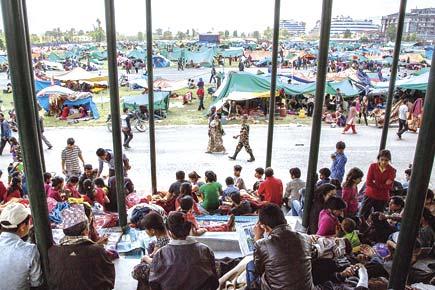
Thousands have lost their lives in the earthquake that shook Nepal, and many more lives may be at risk. Doctors fear that post-quake rainfall in the mountain kingdom has exposed it to the possibility of an epidemic, since there are little sanitation facilities or clean water.
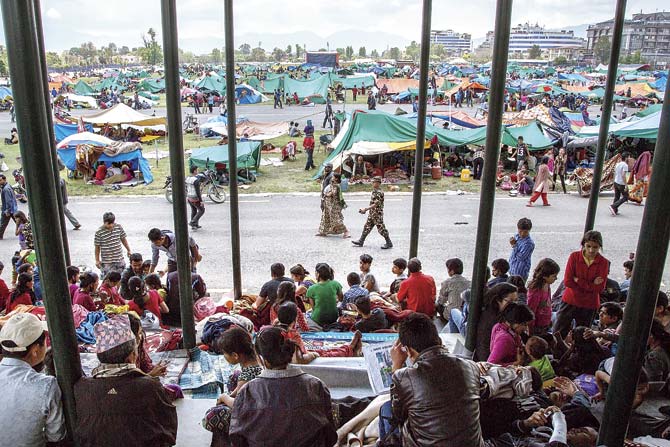
Thousands of residents take shelter in an evacuation camp set up at Tundikhel park in Kathmandu. Pics/Getty Images
ADVERTISEMENT
Also read: Death and destruction as massive earthquake hits Nepal
First-hand information from those rescued from the country revealed a frightening reality. Mehul Thakkar, a resident of Santacruz (West) who was stranded for over 24 hours in Kathmandu with his family, said, “Water pipelines bringing water from Pokhara to Kathmandu were damaged badly in the earthquake, leading to severe water scarcity.
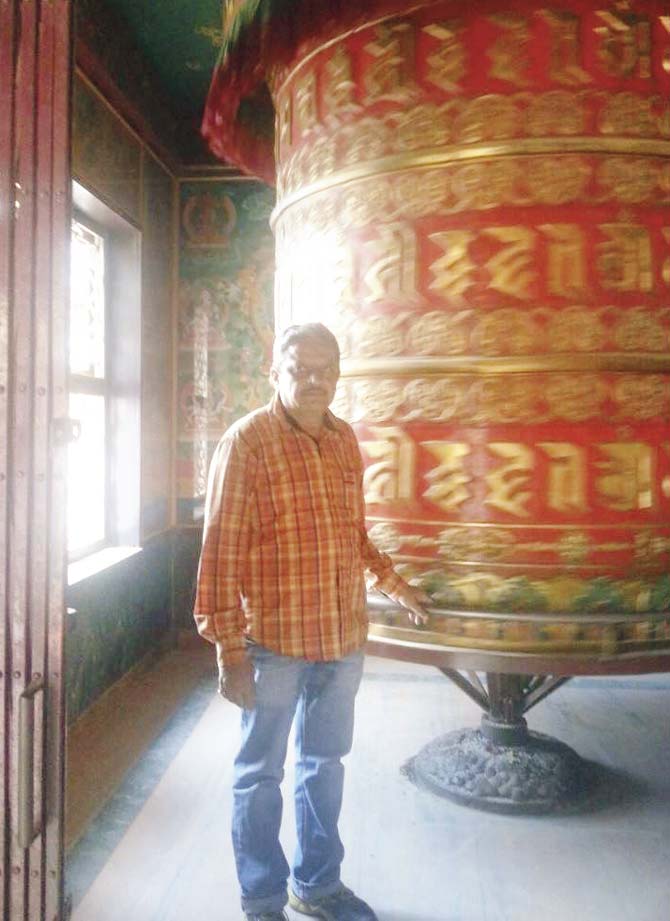
Santacruz resident Mehul Thakkar was stuck in Kathmandu for 24 hours before being brought back to India
We were forced to use the same toilet again and again, with no water for flushing and using toilet papers. We could not even think of the luxury of having showers,” he said. While most hotels had drinking water stock for a day or two, those stuck in hotels had no way of knowing about the special planes put into service to get Indian citizens back.
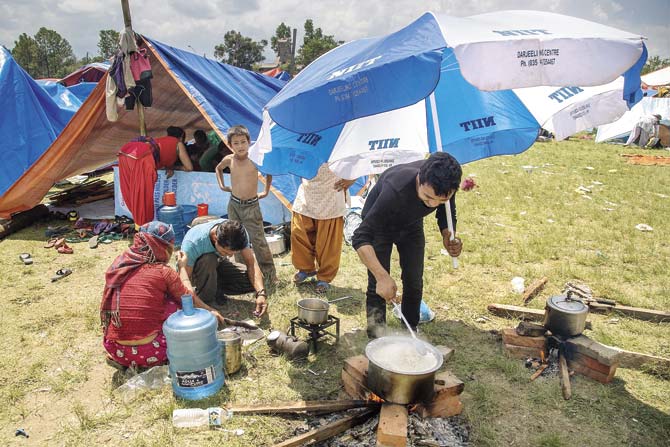
Makeshift toilets, adequate supply of drinking water, and good shelter are the need of the hour, said doctors
“While those in hotels could at least relieve themselves inside a closed toilet room, many local villagers and tourists stranded in the open had no choice but to answer nature’s call in the open. Women had to wait for the cover of the dark to relieve themselves,” said another tourist from Delhi.
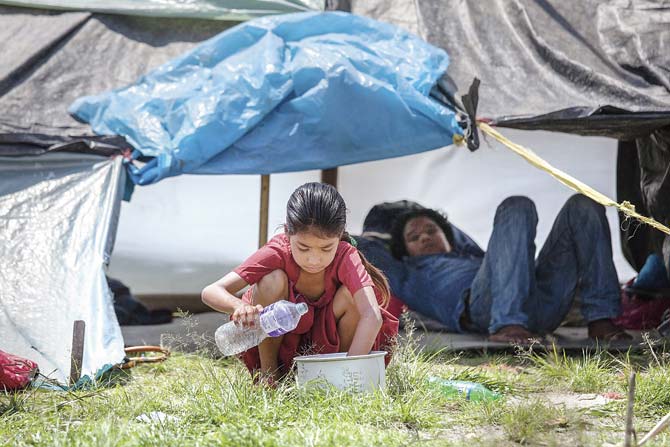
Dangerous rain
Forensic experts say that rainwater would lead to early decomposition of dead bodies and reduce chances of survival of those trapped under debris, as water could enter the air passages and choke them.
Moreover, lack of sanitation facilities means diseases are lurking around the corner. Dr Wiqar Shaikh, professor of medicine, Grant Medical College, said “There could be spread of waterborne diseases including diarrhoea, cholera, and other infectious diseases like dengue and malaria.
Rat urine could cause leptospirosis, etc. Those already being treated for injuries in various hospitals can also be prone to infections spread through water or stool. This may cause higher mortalities.” Dr Shaikh even hinted that an epidemic-like situation may break out if immediate measures are not taken to ensure proper supply of makeshift toilets, sanitation, adequate supply of drinking water, hygiene, shelter and food.
He also insisted that rescue crew and tourists should be screened at entry level, to avoid them becoming carriers of diseases. According to medical experts, surveys have shown in the past that approximately 27 per cent of rural households in Nepal have access to toilets and that contaminated water-related cases were on the high, with diarrhoea being one of the major causes for child mortality in Nepal.
Sanitation missing
Meanwhile both the National Disaster Management Authority (NDMA), and National Disaster Response Force (NDRF) have no information on sanitation programmes or makeshift toilets planned for the rescue operation.
A senior official from NDMA said, “We do not have any requirement list from our rescue operators asking for makeshift toilets, nor do we have any sanitation programme at present, though sufficient water, storage tanks and chlorine tablets are being taken to Nepal along with other medicines and manpower/machinery requirements.”
Kamal Kishore, member, NDMA, speaking to mid-day from Delhi, said, “The rains have only made the rescue operation challenging, but the rescue team is following the Standard Operating Procedures. With every passing day, we are also concerned about health issues that will crop up due to the contaminated water.
Every effort is being done to curtail the situation.” Officials from Ministry of External Affairs were not available for comment, despite numerous attempts having been made to reach out to them.
'Rescue first'
S S Guleria, deputy inspector general (operations and training), NDRF, told this paper from Delhi, “On Monday, the NDRF team rescued 10 people from the debris and removed 60 dead bodies from Maharajgunj, Sitapaila, and Brijeshwari in Kathmandu.
13 teams of NDRF (each team comprising 40-45 personnel), including three that left yesterday, are carrying out rescue and relief operations. We will continue to search for living persons for the next 96 hours, as there are high chances of finding people alive beneath the debris.”
An official of the rank of director has also gone to supervise the mission. When asked about the sanitation problem, Guleria replied that though it was a matter of concern, some other agency would be looking into the same, and that they were only focusing on the rescue mission. “Our operation will continue for a fortnight, as a major portion of affected area needs to be cleared,” he said.
 Subscribe today by clicking the link and stay updated with the latest news!" Click here!
Subscribe today by clicking the link and stay updated with the latest news!" Click here!







